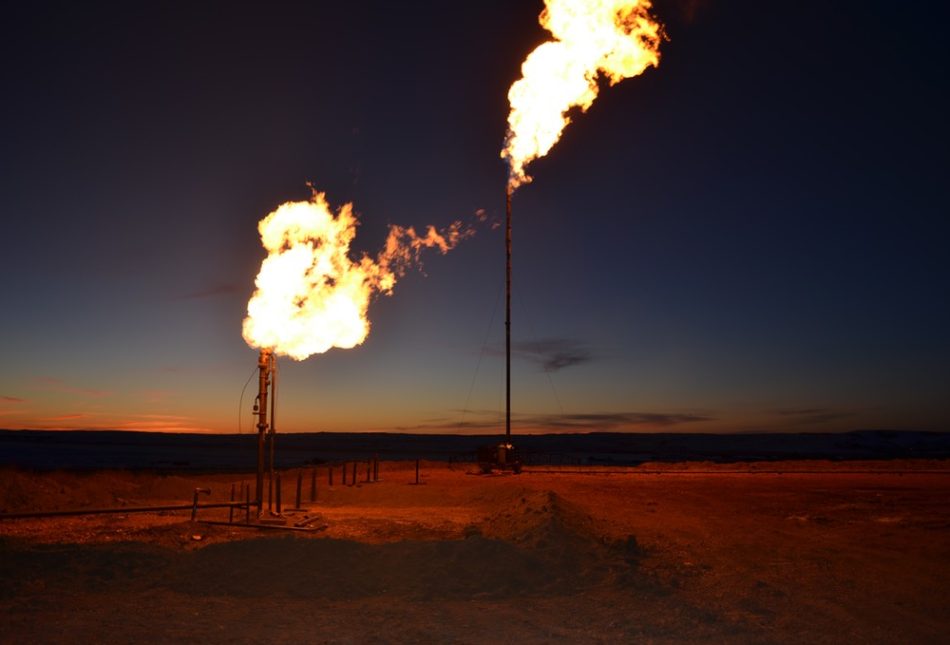New environmental law would cripple New Mexico

The following article appeared in the Las Cruces Sun-News on December 23, 2019.
![]()
Times are tough for New Mexican business owners — and government regulations aren’t helping.
At a recent town hall meeting in Farmington, attendees worried that new state rules would harm small oil and gas firms. The owner of one such firm said that these regulations put him “on a death train, economically.”
These folks could soon face an even bigger threat, this time from Washington. Congress is considering the Methane Waste Prevention Act, a plan to reduce the amount of the potent greenhouse gas emitted from oil and gas wells.
Reducing methane emissions is an excellent idea, but this plan misses the mark. This bill would do little to help the environment. And it would drown New Mexico’s energy firms in red tape, robbing the state of crucial economic benefits.
This bill takes a one-size-fits-all approach to methane reduction. It would require all energy producers operating on federal and tribal lands to recapture 85 percent of methane their operations release within three years, and 99 percent within five.
That means small energy producers operating on Navajo tribal lands have to meet the same target as ExxonMobil’s $5.6 billion operation in Lea County. That doesn’t make sense — especially considering firms of all sizes already recapture methane.
After all, methane is a major component of natural gas. Recaptured emissions can be converted into valuable energy and sold to consumers. Firms don’t need regulations to tell them that.
That’s why America’s leading oil and gas companies formed the Environmental Partnership to share best practices on reducing leakage and waste. Thanks in part to industry-led efforts like this, methane emissions from natural gas dropped 14 percent between 1990 and 2017, even as natural gas production increased by more than 50 percent.
The Methane Waste Prevention Act does nothing to bolster these efforts. Its bevy of regulations could actually make it harder for the industry to continue its successful methane reduction strategies.
These new regulations would also raise costs on energy firms. For instance, increasing the mandatory comment period that accompanies applications for new oil and gas operations would cost companies hundreds of millions of dollars in compliance costs each year. That could put many small firms out of business. One report found that a proposal like this could lead to the closure of up to 40 percent of wells on tribal and federal lands.
Such closures would be devastating for our state. In 2017, the energy industry funneled over $820 million to New Mexico public schools and over $240 million to state colleges and universities. All told, revenue from oil and gas firms makes up over 14 percent of the state economy and supports more than 100,000 jobs.
If New Mexican oil and gas operations shut down, our state will lose this crucial revenue source. Just a 1 percent decline in royalty payments from these firms would cut millions of dollars in revenue the state could spend on schools, roads, and health care.
Undermining New Mexico’s energy industry would also compromise national security. Our state’s energy-rich Permian Basin plays a major part in making the United States the world’s largest producer of oil and natural gas. Our domestic energy supply has reduced our reliance on oil from Russia, Venezuela, and hostile nations in the Middle East.
The Methane Waste Prevention Act would compromise this progress, and force us import energy from hostile nations. It would also increase global methane emissions, since oil-rich countries around the world have subpar environmental regulations.
Domestic energy production supports New Mexico’s economy, keeps America safe, and protects the environment. The Methane Waste Prevention Act would compromise all three. If Congress wants to reduce methane emissions, they need to find a better plan.
Paul Gessing is president of the Rio Grande Foundation.
